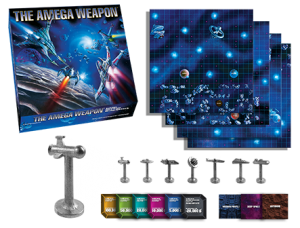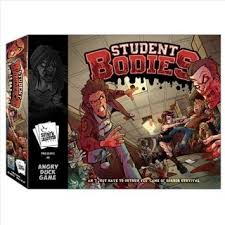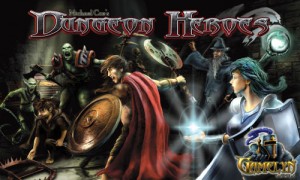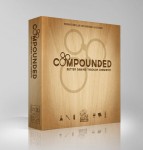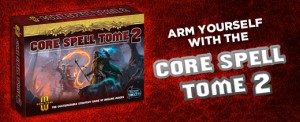 This is long over due, but I wanted to make sure that I gave this game a proper play test. Mage Wars is a mutation of the board and card game genres that borrows a miniature game feel. That is, it combines elements from card and board games to create a unique play experience. In this article we will focus on mechanics, “deck construction”, combat and more.
This is long over due, but I wanted to make sure that I gave this game a proper play test. Mage Wars is a mutation of the board and card game genres that borrows a miniature game feel. That is, it combines elements from card and board games to create a unique play experience. In this article we will focus on mechanics, “deck construction”, combat and more.
But before going crazy on the game let’s talk about their history. The crew at Arcane Wonders started developing Mage Wars five years ago. In that time they have run several play tests and visited several convention; experiences that they used to further develop the game.
The basic idea behind Mage Wars is that you control a mage in the battle arena. Each mage casts spells to defeat the other in tactical combat of magic. When one mage has lost all their life the game ends. The basic game comes with everything for two mages four mage options.
At first Mage Wars is a little bit overwhelming to learn. But the support offered by Arcane Wonders makes the curve an easy burden. They have how to videos and a packaging disclaimer. They are doing a great job keeping in touch with the players, which is a great asset to the game.
Where do you start talking about a new game type. I think it would be easiest to start with the board. It is pretty basic. It establishes the arena where you will perform combat. The board also features the mana counters, quick reference chart and a life chart. Further the board is gridded into 12 zones for easy movement and combat. At the start of a game each mage is in an opposing corner diagonally. Since there is no diagonal movement in the game this pretty much safeguards the players from a cheap victory.
One of the most unique and fundamental aspects of Mage Wars is the “deck construction”, which isn’t deck construction at all. In Mage Wars there is no drawing. When you sit down to play Mage Wars you start by choosing a mage. The basic game comes with four mages. Once you have selected one you will build your spell book out of the cards you own. I should note that your choice in a mage will affect what spells you can choose. Each mage has schools of magic it can use. While playing you get to select your spells from the spellbook. You start the game with zero spells. During the planning phase each player selects 2 spells. As a big CCG player I find this to be the coolest element. There is no top deck, or bad luck. You are responsible for your choice, which means it is tactics and not luck of the draw. There is still some luck involved in combat, but for precombat mistakes only you are to blame.
Each round is broken into two stages, ready and action. In the ready stage you prepare by adding mana, picking spells, and applying upkeep effects. During the action stage mages take turns casting spells, summoning, placing enchantments, and attacking. The exchange of turns is based on initiative that is rolled at the start of the game. Action markers are used to designate what in play cards can and can’t be used.
Combat is where the awesome stuff happens. It is a pretty simple system. Mage Wars uses special d6’s for combat.
- Blanks are misses.
- Numbers are hits.
- Exploding numbers are critical hits.
- Some spells have special effects that only trigger if you roll the correct result.
Rather than listen to me stumble through combat with words you should watch these videos. They walk you through a few turns of the game.
Mage Wars is a unique gaming experience. It sets up an arena where mages collide. You can easily have a lot to command once the game gets rolling. The mechanic that puts Mage Wars over the top is the spellbook. By removing luck of the draw from the game it opens up so many doors to strategy. While it may look like other board games it is not. This is a game that you absolutely must try in order to judge it.
You can learn more about Mage Wars here.


